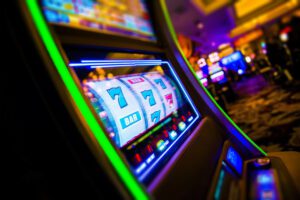In this fast-paced world where productivity is often glorified above all else, taking time for leisure activities has become a luxury a lot of people can’t afford.
But, emerging research suggests that leisure isn’t just enjoyable—it’s essential for maintaining and even enhancing our cognitive health.
The Hidden Benefits of Recreational Activities
Scientists have discovered that when we engage in certain recreational activities, our brains receive benefits that extend far beyond immediate pleasure. Interestingly, one of the most significant cognitive benefits comes from activities that challenge our minds in enjoyable ways. Games such as poker, chess, and even certain casino games require strategic thinking and decision-making skills that keep our neural pathways active.
For those interested in exploring these options, there’s a full list for 2025 of reputable gaming platforms that offer both entertainment and cognitive stimulation. Research has consistently shown that the combination of focus, pattern recognition, and adaptive thinking required in these games can help maintain mental sharpness, particularly as we age.
How Leisure Activities Rewire Our Brains
When we participate in leisure activities that we find genuinely engaging, our brains release neurotransmitters like dopamine and serotonin. These chemicals not only make us feel good but also play crucial roles in learning and memory formation. The brain’s neuroplasticity—its ability to form new neural connections throughout life—appears to be enhanced when we engage in activities that combine pleasure with mild challenge.
This neuroplasticity is particularly important as we age. Multiple studies have shown that older adults who regularly engage in stimulating leisure activities demonstrate less cognitive decline compared to their less-engaged peers. The evidence suggests that challenging the brain through various leisure pursuits may help maintain cognitive reserves and potentially delay age-related cognitive changes.
The Creativity Connection
Beyond preserving cognitive function, leisure activities have been shown to enhance creativity in surprising ways. When we step away from work-related thinking and engage in enjoyable pursuits, we activate different neural networks that facilitate creative problem-solving.
Research into the brain’s activity during leisure has revealed that during periods of relaxation and enjoyable activities, our minds often make unexpected connections between concepts that might otherwise remain separate. This phenomenon, sometimes called “incubation” in creativity research, explains why solutions to problems often come to us when we’re engaged in something completely unrelated to work.
Finding Your Cognitive Sweet Spot
Not all leisure activities offer the same cognitive benefits. Those that combine several of these elements tend to provide the greatest boost to brain health:
Mental challenge: Activities that require strategic thinking or learning new skills
Social interaction: Engagement with others, which activates multiple brain regions
Physical movement: Even light physical activity increases blood flow to the brain
Novelty: New experiences that force the brain to adapt and form new connections
Whether it’s taking up a musical instrument, joining a book club, learning a new language, or engaging in strategic games, the key is finding activities that you genuinely enjoy while providing gentle cognitive stimulation.
Read more:
The Science Behind Leisure and Cognitive Health









